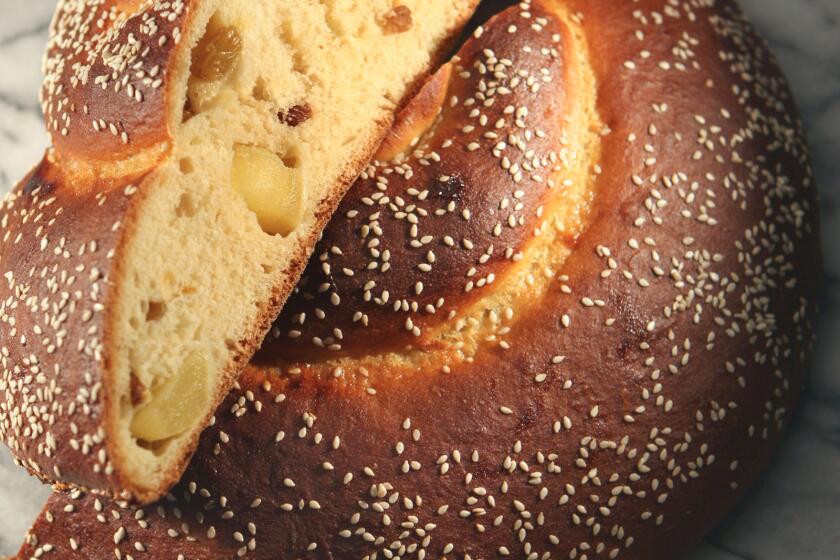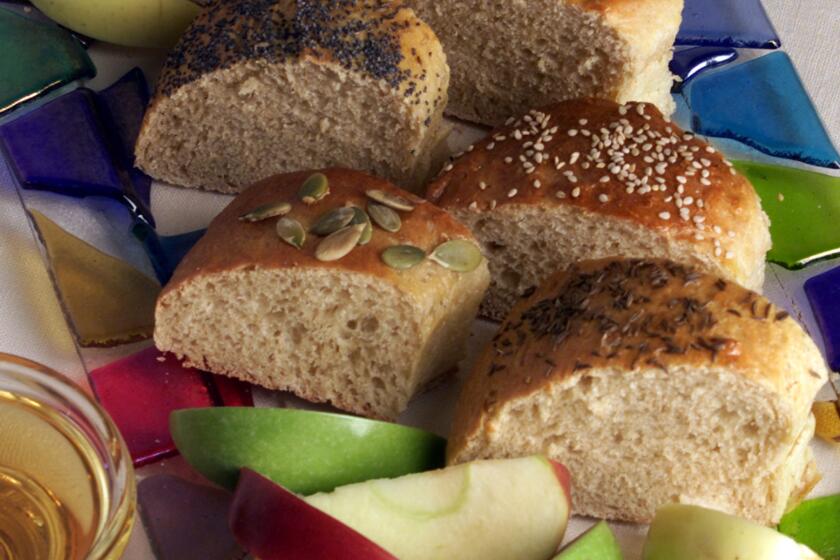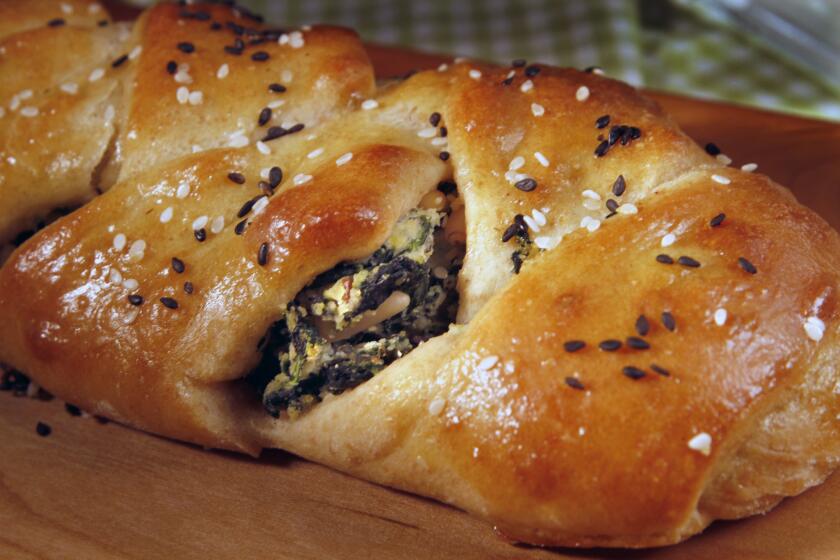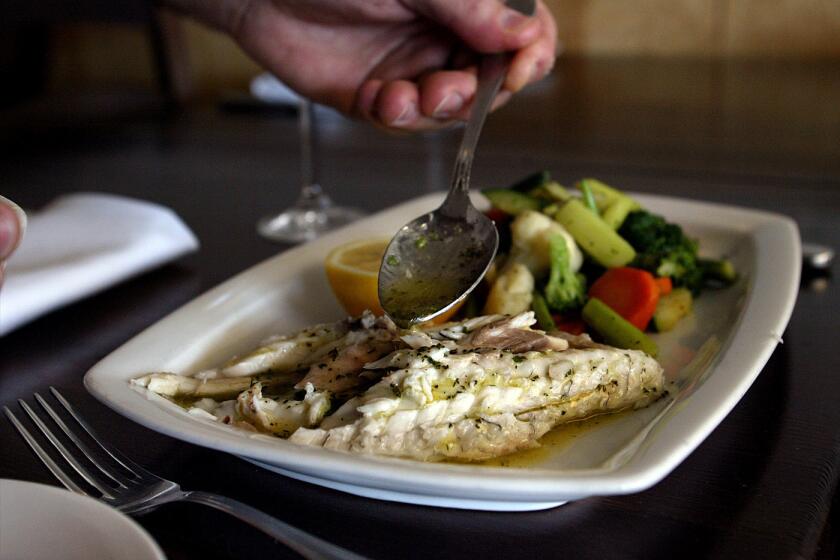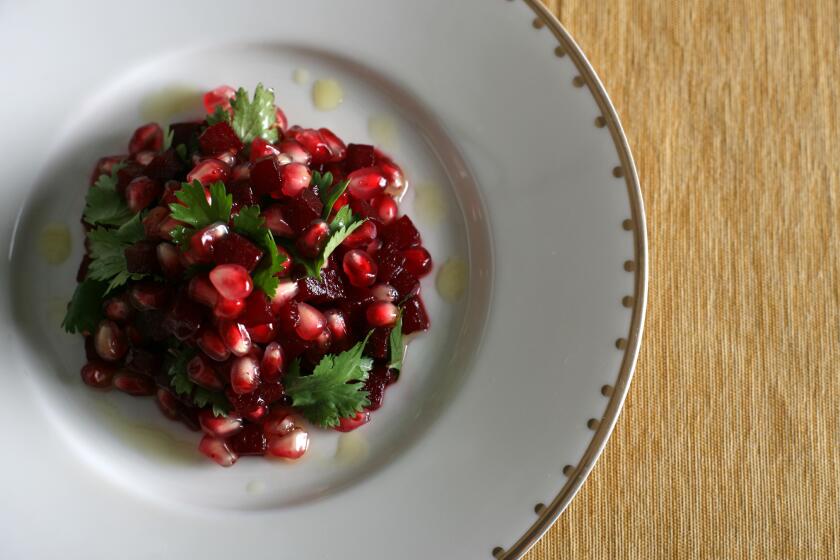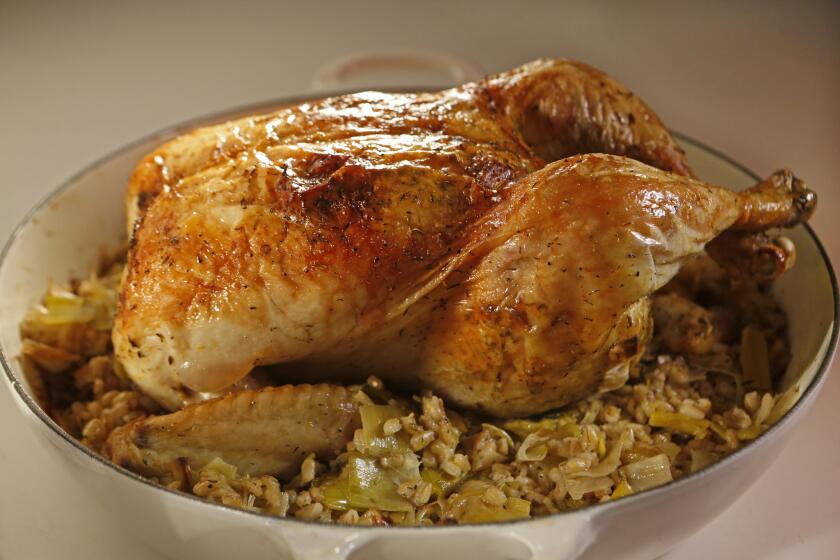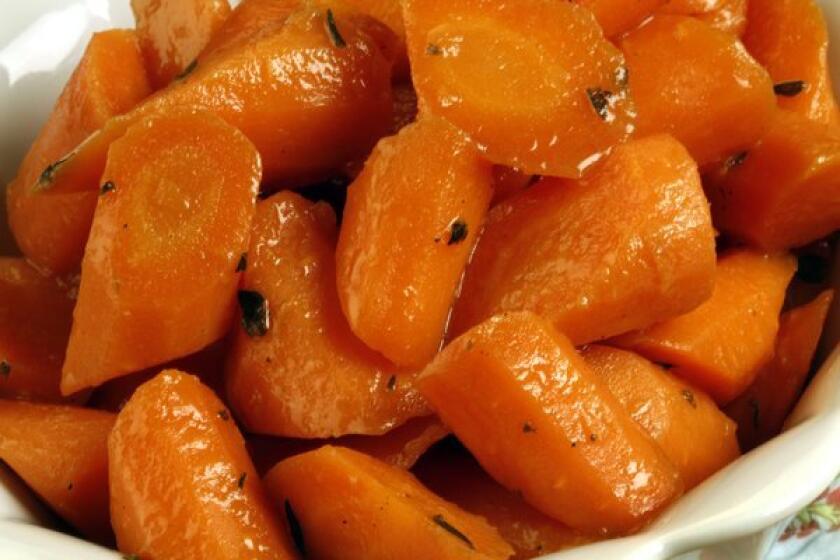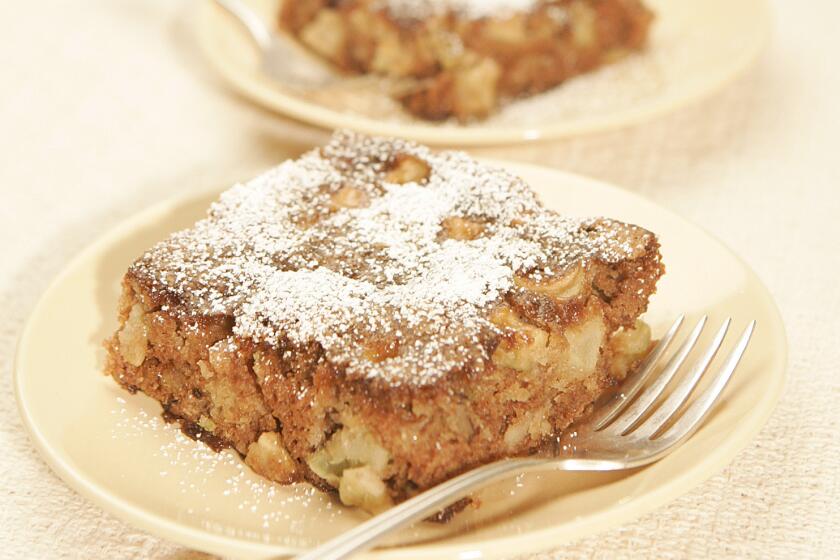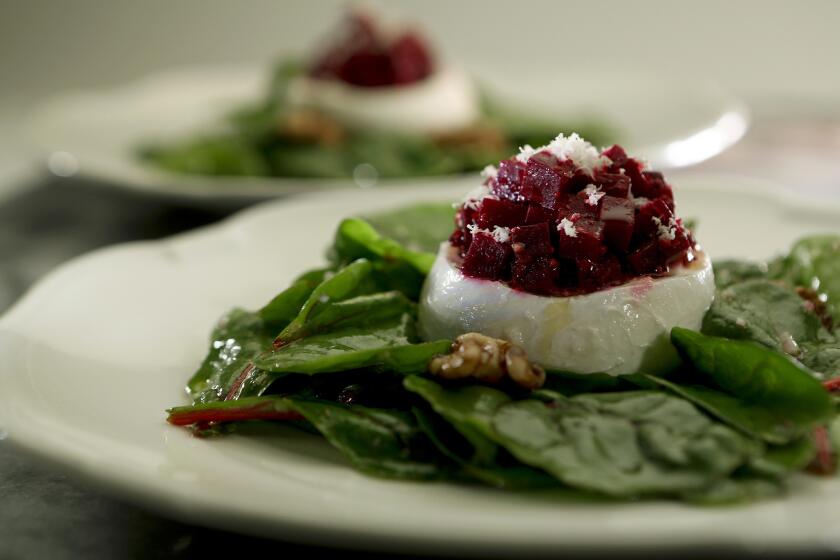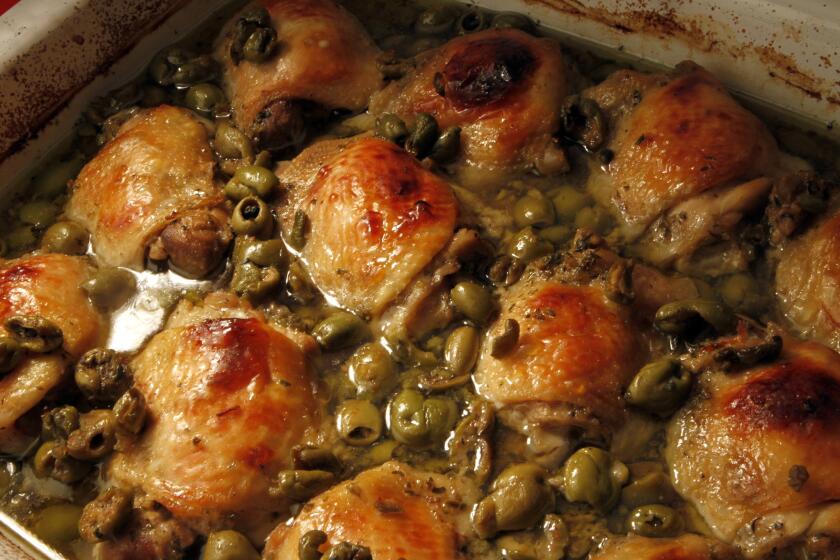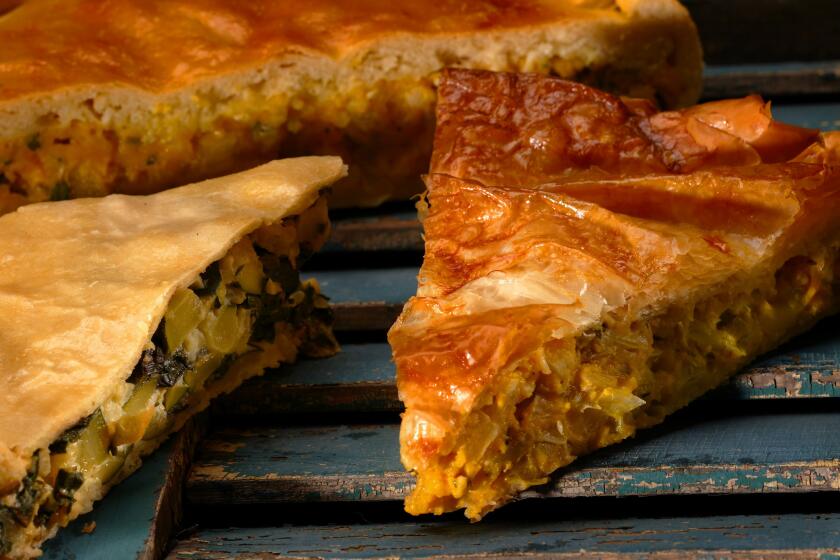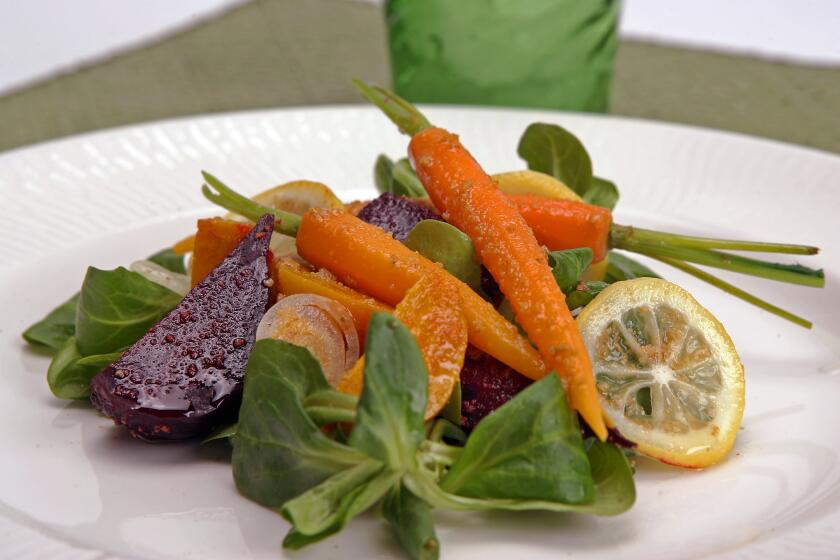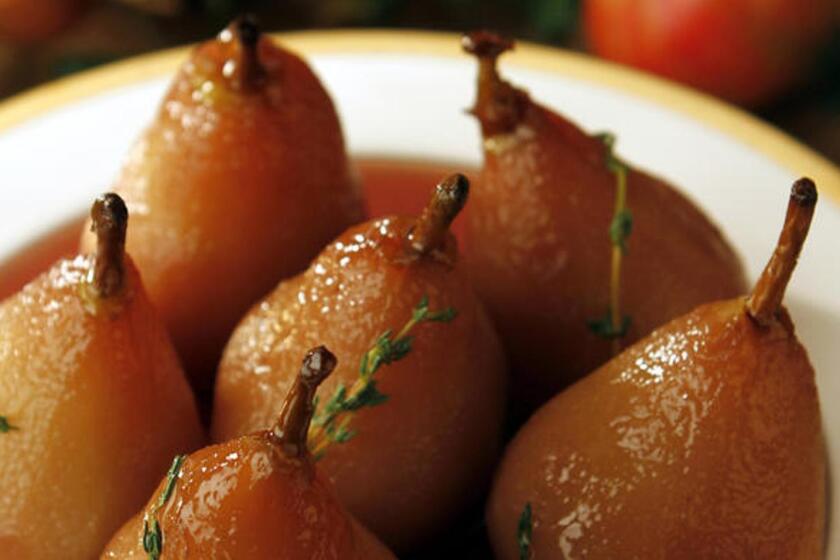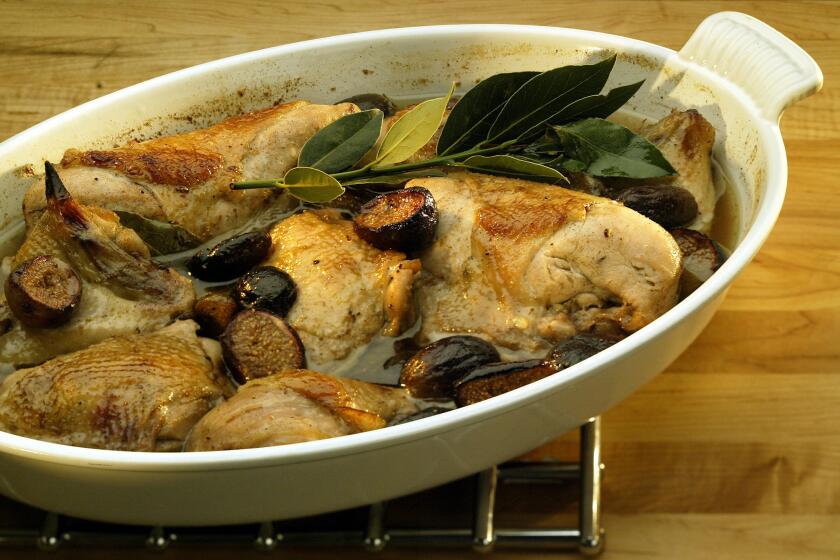Julie Giuffrida is the former Test Kitchen coordinator for the Los Angeles Times.
Celebrating during a pandemic: We will still eat apples and honey.
This year, those who celebrate the High Holy Days of Rosh Hashanah and Yom Kippur will “attend” synagogue observances via internet broadcasts and forgo the large gatherings that characterize the season’s festive feasts. While some might engage in smaller, socially distant outdoor get-togethers within their quarantine bubbles, most will sit down to holiday meals with only their households.
So what’s a cook to do? Perhaps, if nothing else, breathe a sigh of relief. There won’t be the usual fun and fanfare, but there also will not be the endless planning, shopping, cooking, entertaining, dishwashing and late-night cleaning up.
Fewer guests gives you the time and energy to experiment with more ambitious cooking. Think of it as a low-risk opportunity to try something new.
On the heels of the quarantine sourdough craze, you can gussy up challah for the new year.
Apple and honey challah
Time 1 hour 15 minutes
Yields Serves 10
Round challah with seven seeds
Time Active work time: 35 minutes
Total preparation time: 3 hours plus 1 hour cooling
Yields Serves 16
Spinach- and ricotta-stuffed challah
Time 1 hour 20 minutes
Yields Makes 2 loaves, 8 to 10 slices each
The Hebrew names of Rosh Hashanah’s symbolic foods are plays on words, each expressing a wish for the coming year. Often eaten one at a time as a Seder in a ritual order, these foods also can be cooked and eaten together.
Carrot and pomegranate soup
Time 1 hour 45 minutes
Yields Serves 4 to 6
Pomegranates represent the wish that our good deeds may increase like the seeds of the fruit.
Whole fish roasted in sea salt with aromatic herbs
Time 40 minutes
Yields Serves 4
Serving the head of a fish symbolizes the wish that we may be as the head and not as the tail.
Beet and pomegranate salad
Time 1 hour 20 minutes
Yields Serves 6
With beets, we wish that our enemies may be dispersed.
Roasted one-pan chicken with leeks and barley
Time 1 hour 20 minutes
Yields Serves 4
Leeks fulfill the wish of enemies being decimated.
Carrots with honey, lemon zest and thyme
Time 35 minutes
Yields Serves 4
Carrots represent the wish that our merits may increase.
Boozie's apple cake
Time 1 hour 15 minutes
Yields Serves 12 to 16
Apple and honey sorbet with pomegranate sauce
Time 40 minutes
Yields Serves 6 to 8
Apples and honey symbolize the wish that we may be renewed for a good and sweet year.
For Yom Kippur eve, try this matzo ball soup with a twist.
Kismet’s Chard and Leek Matzo Ball Soup
Time 2 hours
Yields Serves 8 to 10
Break the fast with seasonal salads and a dip to go with leftover challah. Finish with a stunning fig cake.
Beet and burrata salad
Time 1 hour 30 minutes
Yields Serves 4
Five-spice carrot-cashew butter
Time 40 minutes
Yields Serves 10 to 12 (2 cups)
Caramelized fig cake with lemon anglaise
Time 1 hour 15 minutes
Yields Serves 8
Sukkot’s eight days of dining can feature the “seven species,” which are barley, grapes, pomegranates, dates, figs, wheat and olives. These foods are native to Israel and were brought to the temple as first fruits for harvest festivals during biblical times.
Cracked wheat mana’esh (flatbread with za’atar)
Time 35 minutes
Yields Makes 8 (6- to 7-inch) flatbreads
Chicken thighs with honey, olives and oregano
Time 2 hours
Yields Serves 6
Greek winter squash and leek pie
Time 1 hour 30 minutes
Yields Serves 8
Canele's beet salad
Time 1 hour 40 minutes
Yields Serves 2
Olives al forno
Time 25 minutes
Yields Serves 8 to 10
Pears in pomegranate wine with honey and lemon thyme
Time 45 minutes
Yields Serves 6
Apple galette
Time 1 hour 10 minutes
Yields Serves 10
You will probably have enough leftovers to see you through the final meals of Simchat Torah and Shemini Atzeret at the season’s end. Still, it’s always nice to have a new dish or two.
Fragrant chicken with figs
Time 1 hour
Yields Serves 6
Barley thumbprints with honey and hazelnuts
Time 50 minutes
Yields Makes about 32 (2-inch) cookies.


